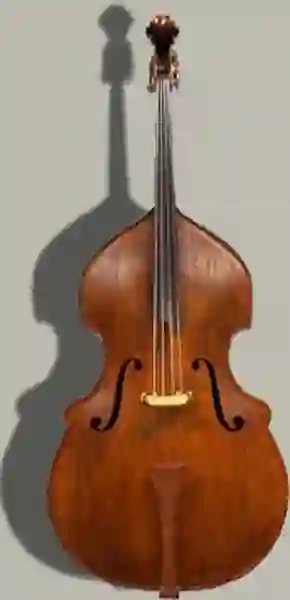Historical development of the double bass - Philipp Dangas
Historical development of the double bass
The bass instruments of the viola da gamba family, from which today's string instruments emerged around 1600, were the bass viola da gamba, great bass viola da gamba and the sub-bass viola da gamba. From these developed the bass violin da braccio (today's violoncello) and the violone.
The famous violin makers of that time were already busy making these instruments. Special mention should be made of Paolo Maggini (1580-1640) from Bottocino. For a long time, the first strings, tuned to fifths, played no significant role in art music. The opera "Alcyone" (Paris 1706) by Marin Marais (1656-1728) is mentioned as one of the first major works in which the violone is said to be used.
In the works of Johann Sebastian Bach it was already customary for the violone to play the part of the celli in unison with them. Since the bass violas had too little sound for their use in the orchestra, German and Italian violin makers undertook to create a more powerful instrument at the beginning of the 18th century.
The definitive predecessor of today's double bass was created around the middle of the 18th century. In the second quarter of the 19th century the 3-string double bass fell out of use and the 4-string took its place. The main reason lay in the expansion of the tonal range of the romantic orchestra, especially towards the lower end. Richard Wagner, who at the beginning of his "Rheingold" demanded the long-lasting pedal point E1, managed to tell the double bass player to tune the E1 string down to E flat. This was possibly the reason for adding a 5th string to the double bass. Today, instead of the C1 string, an B2 string is used with regard to a uniform fourth tuning of the strings.
Table summary for the use of double bass in music
The table below shows the use of the double bass in music shown. Musical works are performed with the name of the composer and the work.

The double bass in large scale
The double bass is the deepest and largest stringed instrument. Has a wide range of applications from the modern symphony orchestra to jazz, rock 'n' roll and rockabilly.
Internal search function
| Name | Value | Delete |
|---|---|---|
| care_did | 040fa4be-fc74-4caa-aad7-926b487304fb | Yes |